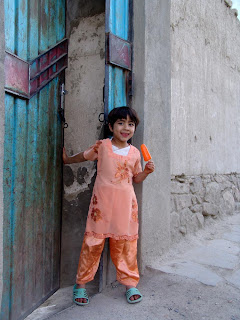 This is a photo, taken over my shoulder, of a defused suicide vest at a news conference. A suicide bomber had been trying to board and attack an army bus, but he was spotted, kicked to the ground and arrested.
This is a photo, taken over my shoulder, of a defused suicide vest at a news conference. A suicide bomber had been trying to board and attack an army bus, but he was spotted, kicked to the ground and arrested.There was dramatic TV footage of him being held with his hands behind his back by one sole policeman, who kept peeking inside the man's shirt to see the vest and wires. Other officers in the area stood a good distance away. Then another policeman came to cut the wires.
During the news conference, as police were describing the mobile phone he could have used to detonate the bomb, the tell-tale tick tick and buzz of a mobile phone signal could be heard through the speaker system in the conference room. The sound nearly made me jump out of my seat and run out of the room, I was so worried the cops had failed to properly defuse the bomb.



















































